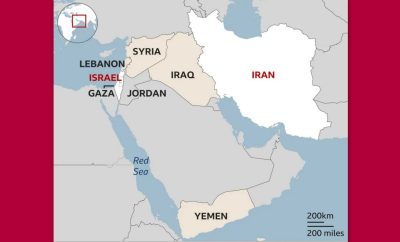
A New Year’s Resolution for the Transatlantic Community
The U.S.–Europe relationship is too important to the world to founder over China or trade issues.
Anniversaries and new years are always a good time to take stock of one’s blessings and make favorable resolutions for the months to come. At the start of 2020 and a new decade, the transatlantic relationship is changing, but it remains as indispensable as ever.
In Brussels a new European Commission, led by President Ursula von der Leyen, is beginning to hit its stride. In Washington, attention is turning toward the elections coming in the fall. Amid all this, officials on both sides of the Atlantic should take the time to make one key resolution for the year ahead: The U.S. and Europe will not make each other into strategic competitors.
The United States and Europe are longtime allies and friends, but today, as global economies realign and adjust to the business, security, and moral challenges posed by the Chinese government, leaders must guard against gaps and divisions that threaten to separate the United States from Europe.
Over the past three years, the U.S. government has affirmed that the world is once again in a period of sustained big-power competition. In the words of the U.S. National Security Strategy, this requires “the United States to rethink the policies of the past two decades,” especially regarding international actors such as China. While an increasing number of officials in Washington have articulated the view that Europe is becoming a battlefield in this competition, one on which Europeans themselves should lead, too many European leaders have responded with hedges and half statements. Equally unfortunate, within the U.S., too many politicians continue to view Europe as a post-historical region for which Brussels can manage lingering trouble spots without active American diplomacy.
The potential danger for the U.S.–Europe partnership stems from the changing nature of the U.S.–China economic relationship. Despite the large volume of trade between the U.S. and China, leaders in both countries see benefit not in further economic interdependence but in selective decoupling — particularly in areas of advanced and emerging information technologies. Trade and investment between the two countries has contracted, and disagreements over security risks posed by Chinese technology have risen to become priority areas in American foreign policy.
America’s increasingly blunt warnings about Chinese investment have met with a mixture of reactions across Europe. What’s troubling for the U.S. is that China is using its version of state-led mercantilism to target strategic loans and investments toward Europe. China has established a “17-plus-1” format between itself and cooperating central and southern European states to facilitate its political influence in the region and expand its Belt and Road project to increasingly connect Chinese exporters to European consumers.
Συνέχεια ανάγνωσης εδώ
Πηγή: www.nationalreview.com




